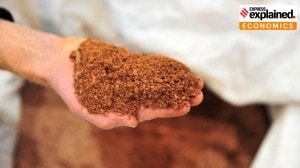Report faults two authors of Bush terror memos
After five years of often bitter internal debate,the Justice Department concluded in a report released on Friday that the lawyers...
After five years of often bitter internal debate,the Justice Department concluded in a report released on Friday that the lawyers who gave legal justification to the Bush administrations brutal interrogation tactics for terrorism suspects used flawed legal reasoning,but were not guilty of professional misconduct.
The report,rejecting harsher sanctions recommended by Justice Department ethics lawyers,brings to a close a pivotal chapter in the debate over the legal limits of the Bush administrations fight against terrorism and whether its treatment of al-Qaeda prisoners amounted to torture.
The ethics lawyers,in the Office of Professional Responsibility,concluded that two department lawyers involved in analysing and justifying waterboarding and other interrogation tactics Jay S Bybee,now a federal judge,and John Yoo,now a professor at the University of California,Berkeley had demonstrated professional misconduct. It said the lawyers had ignored legal precedents and provided slipshod legal advice to the White House in possible violation of international and federal laws on torture.
But David Margolis,a career lawyer at the Justice Department,rejected that conclusion in a report of his own released on Friday. He said the ethics lawyers,in condemning the lawyers actions,had given short shrift to the national climate of urgency in which Bybee and Yoo acted after the attacks of September 11,2001. Among the difficulties in assessing these memos now over seven years after their issuance is that the context is lost, Margolis said.
Indeed,the documents released on Friday provide new details about the atmosphere in which Yoo and the Justice Department prepared their initial findings in August 2002,shortly after the capture of Abu Zubaydah,suspected of being an operative for al-Qaeda.
The report quotes Patrick Philbin,a senior Justice Department lawyer,as saying that he had advised Bybee to sign the memorandum,despite what he saw as Yoos aggressive and problematic interpretation of the Presidents Commander-in-Chief powers in trumping international and domestic law.





- 01
- 02
- 03
- 04
- 05


























